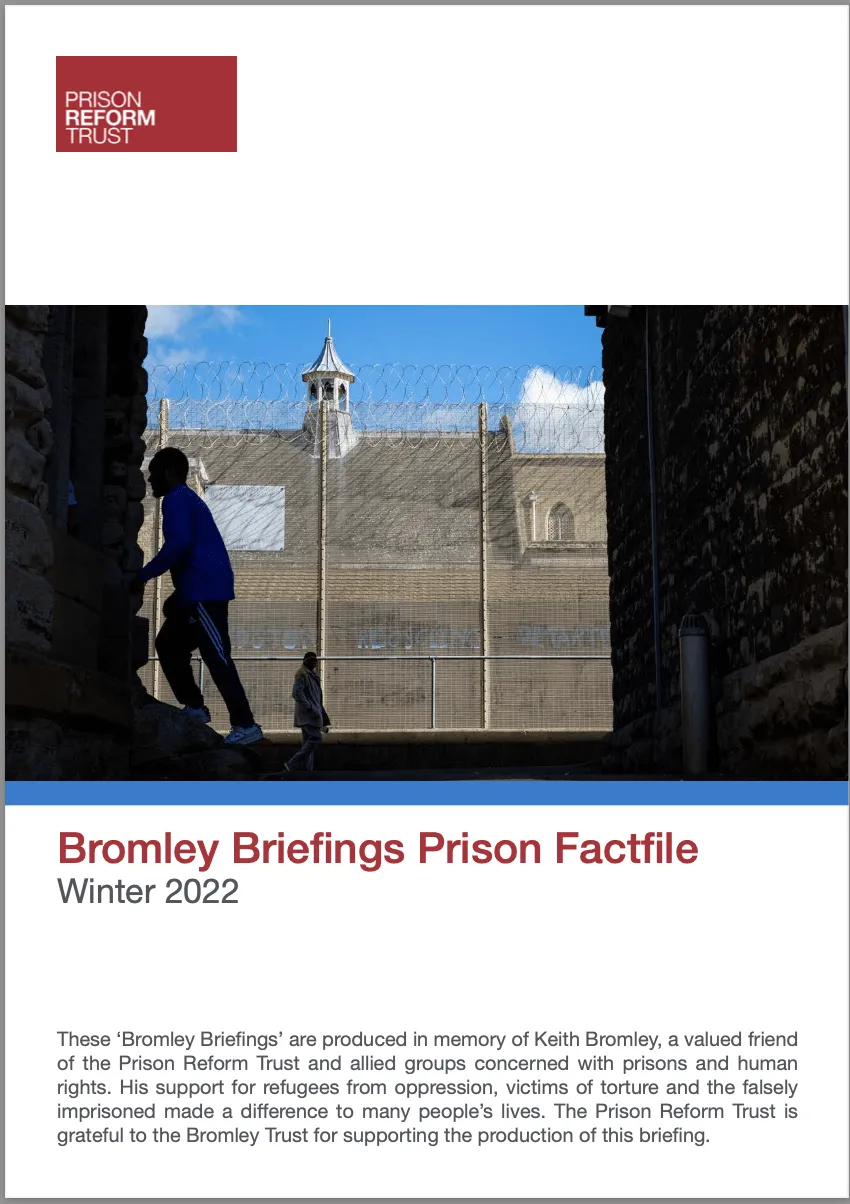
In last year’s introduction to the Factfile I looked forward to the prospect of emerging from the Covid pandemic. How desperately mistaken that prediction has proved to be. Once again, for prisoners and their families, the pains of imprisonment have been terribly amplified by the restrictions imposed to prevent infection. Prisons have relaxed more slowly, and tightened up more quickly, than the wider community. With honourable exceptions, inspection reports reveal prison regimes characterised by boredom and inactivity.
In the midst of this awful situation, officials were preparing a White Paper on the future of prisons, recognising that this is a moment to take stock and aim for something better. Knowing that this work was underway, the Prison Reform Trust engaged our Prisoner Policy Network (PPN) to ask prisoners what they would do to reform prisons. Once again, their answers were not just well informed and practical, but profound. Our report, It doesn’t have to be like this, based on contributions from over 600 people in 50 prisons, shows how much prisoners long for a full working day, and a way of life which expects them to be making decisions and taking responsibility as preparation for what life after release is going to require.
Some of those ambitions seem to be shared in the White Paper that was published in December 2021. But yet again, a long list of ambitions for what prisons might be like, and what they might achieve, is fatally undermined by a refusal to set a timetable to end overcrowding. As this Factfile goes to press, inspectors have reported on HMP Wandsworth—singled out by the government in 2016 as a flagship for what was called “the biggest shake up of prisons since Victorian times”. They found a “crumbling, overcrowded, vermin-infested” prison. Crucially, they also heard that a temporary reduction in the number of people held in Wandsworth was soon to be reversed, and questioned how any progress could possibly be sustained when that happened.
That central question of why we continue to hold so many more people in prison than we have space for comes down to sentencing. While the number of people being sent to prison has fallen, inflation in sentence lengths has meant that the system continues to operate way beyond its safe or decent capacity. Even as prisoners languish in prisons like Wandsworth, the government was legislating to increase the time people spend in those disgraceful conditions.
Which is why this year’s “Long view”, written by Professor Julian Roberts and Jonathan Bild from the independent Sentencing Academy, is such crucial reading. The polling they have conducted shows that, overwhelmingly, the general public does not realise what successive governments have been doing to sentence lengths for well over two decades. Where sentences for the most serious crime have actually been vastly increased, supposedly to bolster public confidence, most people believe they have reduced. For an offence like rape, where a conviction is more or less certain to lead to prison, most people don’t think that’s true.
So we have the absurd situation in which a sentencing policy designed to reassure the public appears to be having precisely the opposite impact. Every time a minister announces that sentences will be toughened up, what people seem to hear is that they must have been getting softer. Countless lives, and many billions of taxpayers’ cash, have been wasted in pursuit of a policy that fails to deliver on every front. A properly informed public debate on how we punish serious crime is very long overdue.
Peter Dawson
Director, Prison Reform Trust